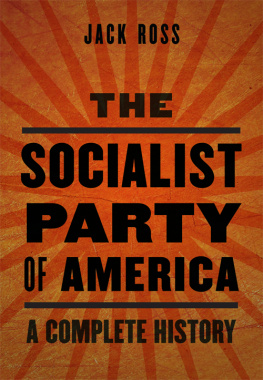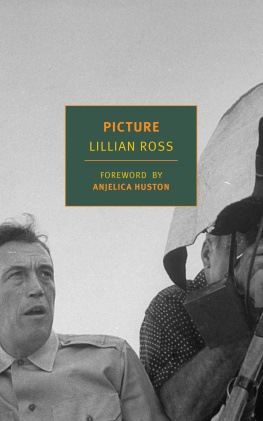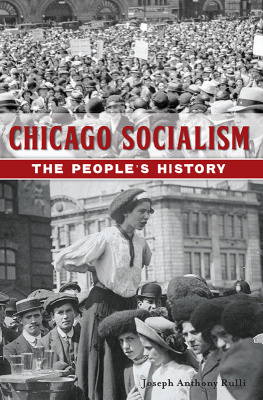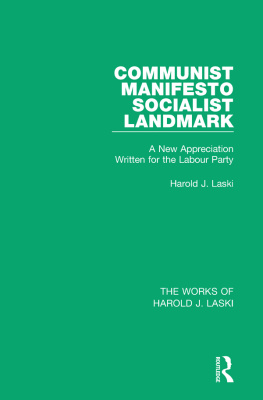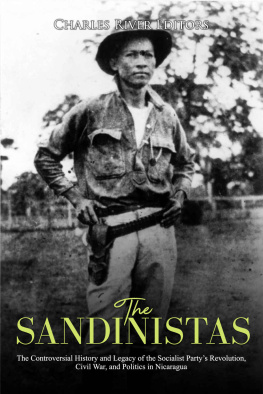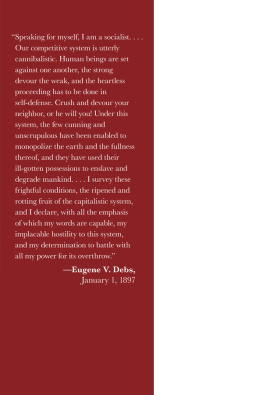Ross - The Socialist Party of America: a complete history
Here you can read online Ross - The Socialist Party of America: a complete history full text of the book (entire story) in english for free. Download pdf and epub, get meaning, cover and reviews about this ebook. City: Lincoln;United States, year: 2015, publisher: Potomac Books, genre: Politics. Description of the work, (preface) as well as reviews are available. Best literature library LitArk.com created for fans of good reading and offers a wide selection of genres:
Romance novel
Science fiction
Adventure
Detective
Science
History
Home and family
Prose
Art
Politics
Computer
Non-fiction
Religion
Business
Children
Humor
Choose a favorite category and find really read worthwhile books. Enjoy immersion in the world of imagination, feel the emotions of the characters or learn something new for yourself, make an fascinating discovery.
The Socialist Party of America: a complete history: summary, description and annotation
We offer to read an annotation, description, summary or preface (depends on what the author of the book "The Socialist Party of America: a complete history" wrote himself). If you haven't found the necessary information about the book — write in the comments, we will try to find it.
Ross: author's other books
Who wrote The Socialist Party of America: a complete history? Find out the surname, the name of the author of the book and a list of all author's works by series.
The Socialist Party of America: a complete history — read online for free the complete book (whole text) full work
Below is the text of the book, divided by pages. System saving the place of the last page read, allows you to conveniently read the book "The Socialist Party of America: a complete history" online for free, without having to search again every time where you left off. Put a bookmark, and you can go to the page where you finished reading at any time.
Font size:
Interval:
Bookmark:
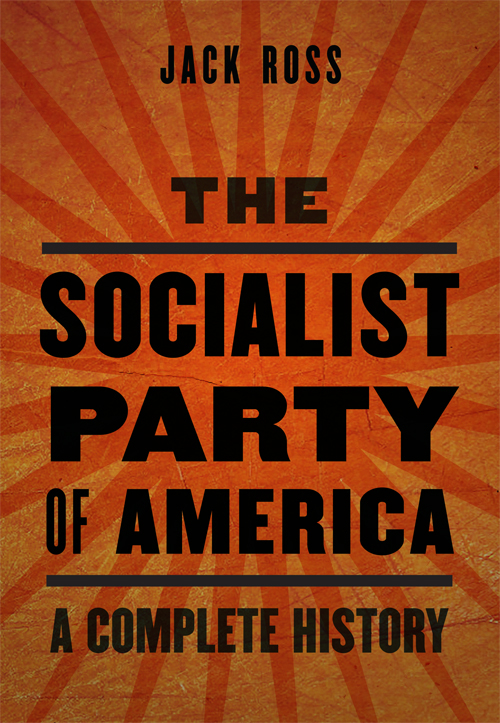
There have been books before on the history of the American Socialist Party, but none that I know of takes the story from the partys roots in the late nineteenth century through its devolution after World War II into Michael Harringtons Democratic Socialist Organizing Committee and the proto-conservative Social Democrats USA. Ross tries to answer the difficult question of why the American Socialists never became a major party, providing an important history not only of the American left but of the right as well.
John B. Judis, senior writer, National Journal
Jack Ross has performed a prodigious and provocative feat of recovery and historical interpretation. In Rosss telling, the Socialist Party of America is not just a dreary dress rehearsal for Cold War liberalism or neoconservatism but rather, at its best, a living, breathing embodiment of populist American radicalism.
Bill Kauffman, author of Aint My America: The Long, Noble History of Antiwar Conservatism and Middle-American Anti-Imperialism
Not only does Jack Ross cover the history of the [Socialist Party of America] and its leading adherents, he also offers an analysis of socialisms rise, decline, and persistence as a marginal movement in the United States that is more complete and original than that of any other scholars of the political left.... This history deserves the attention and respect of every reader.
Melvyn Dubofsky, Distinguished Professor Emeritus of history and sociology at Binghamton University, SUNY , and coauthor of John L. Lewis: A Biography
Published with a Grant from
Figure Foundation
That each be beyond man
Jack Ross

Potomac Books
An imprint of the University of Nebraska Press
2015 by the Board of Regents of the University of Nebraska
Cover image courtesy Lost & Taken
Author photo courtesy of the author
Frontispiece illustration by Robin Hoffman.
All rights reserved. Potomac Books is an imprint of the University of Nebraska Press.
Library of Congress Cataloging-in-Publication Data
Ross, Jack.
The socialist party of America: a complete history / Jack Ross.
pages cm
Includes bibliographical references and index.
ISBN 978-1-61234-490-4 (hardback: alk. paper)
ISBN 978-1-61234-750-9 (epub)
ISBN 978-1-61234-751-6 (mobi)
ISBN 978-1-61234-491-1 (pdf )
1. Socialist Party (U.S.)History. 2. SocialistsUnited StatesHistory. I. Title.
JK 2391. S 6 R 67 2015
324.273'7dc23
2014047931
The publisher does not have any control over and does not assume any responsibility for author or third-party websites or their content.
In memory of my grandfathers, Stanley Ruttenberg (19172001) and Milton Ross (19202011)
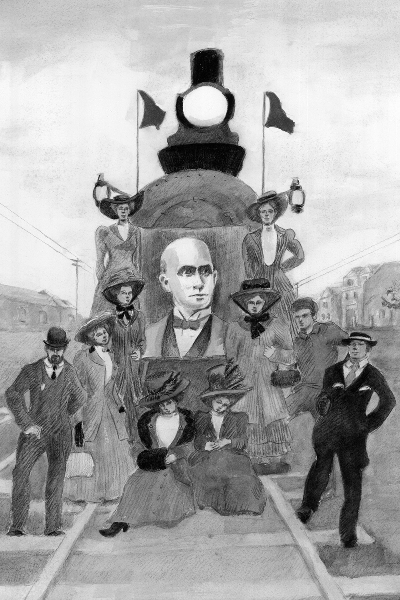
The story of how I came to the study of American Socialism is the story of a personal inheritance.
My great-grandfather, also named Jack Ross, emigrated from the Polish city of Lomza at the age of fourteen, once he was old enough to be jailed by the Okhrana for his involvement with the Jewish Socialist Bund. In New York, he became a skilled diamond cutter and a founder of the International Jewelry Workers Union. After settling down with a family in Brooklyn, he was a Jimmie Higgins, as unsung rank and filers of the Socialist Party were known, of Jewish Branch Boro Park.
What he lacked for distinction in the movement, he more than made up for in the depth of his convictions. He remained an unreconstructed Bundist, insisting he was not a Zionist and reliably voting for what he regarded as the sufficiently nonbourgeois Liberal Party of New York until his death in 1975. His son, my fathers father, was never especially interested in politics, but knew well enough from his father to stay away from the Communists at Brooklyn College in the 1930s, and he voted for Norman Thomas in 1948.
My mothers parents, Gertrude and Stanley Ruttenberg, were never members of the Socialist Party, but they were my role models in serving the cause of social justice. They met on the Steelworkers Organizing Committee in Pittsburgh and were intimately acquainted with the more famous leaders of the CIO up to the time of the merger that formed the AFL-CIO and beyond. They were of a generation of labor partisans caught up in the heyday of Cold War liberalism, with my grandfather ultimately becoming an assistant secretary of labor under Lyndon Johnson.
Naturally, they had many friends who had been active with the Socialist Party. I was fortunate enough to know Morris and Yetta Weisz as an adult and to learn from them at the early stage of my serious interest in its history. Others included Hyman Bookbinder, Emil Rieve, Jack and Mary Herling, Jack and Kitty Barbash, and Esther and Oliver Peterson. My parents met in the mid-level leadership of the Democratic Socialist Organizing Committee ( DSOC ). My father was first active in the Harvard Young Peoples Socialist League ( YPSL ) in the 1960s, and my mother became involved at the behest of labor economist and one-time Young Socialist Nat Weinberg.
By the time I was seriously interested in politics as a teenager, I was acutely aware of the dissonance between my parents liberalism, defined by loyalty to the labor movement if not a conscious inheritance from American Socialism, and contemporary liberalism. Greater still were two additional dissonances: one between those liberalisms and what called itself the left as I came of age a decade after the collapse of Communism, and another between both liberalism and the left and any genuine populism or radicalismthe spirit if not always the substance of which I could clearly tell belonged to what was widely regarded to be the radical right.
An avid reader of American history from a very young age, I was first awakened to the continuity from Populism and the historic American left to so-called right-wing populism before I was even seventeen years old, by a curious volume of radical right provenance titled Populism vs. Plutocracy: The Universal Struggle. I became active with the Green Party around that time, and the books claim to the heritage of leading progressive populists of the first half of the twentieth century, though not of the Socialists, was well received by those Greens I shared it with. As time went on I was exposed to a more substantive and nuanced version of that narrative through such authors as Bill Kauffman and others around the magazine The American Conservative, where I found intellectual stimulation I could never have hoped to find on the contemporary left.
This presented me with the central thesis question of this book very early on: how was the Socialist Party of the original Middle American radical Eugene V. Debs and the quintessential progressive isolationist Norman Thomas the same Socialist Party whose legacy was claimed by so many at the rightmost edge of Cold War liberalism? How was it so for many frankly elitist contemporary liberals, to say nothing of the sectarian left? By the time I began the research for this book, I found the chasm separating the actual Socialist Party of America and the historical memory thereof to be all the greater, and many ideas I associated with my misbegotten radical youth to be quite apt and perhaps even understated.
Font size:
Interval:
Bookmark:
Similar books «The Socialist Party of America: a complete history»
Look at similar books to The Socialist Party of America: a complete history. We have selected literature similar in name and meaning in the hope of providing readers with more options to find new, interesting, not yet read works.
Discussion, reviews of the book The Socialist Party of America: a complete history and just readers' own opinions. Leave your comments, write what you think about the work, its meaning or the main characters. Specify what exactly you liked and what you didn't like, and why you think so.

